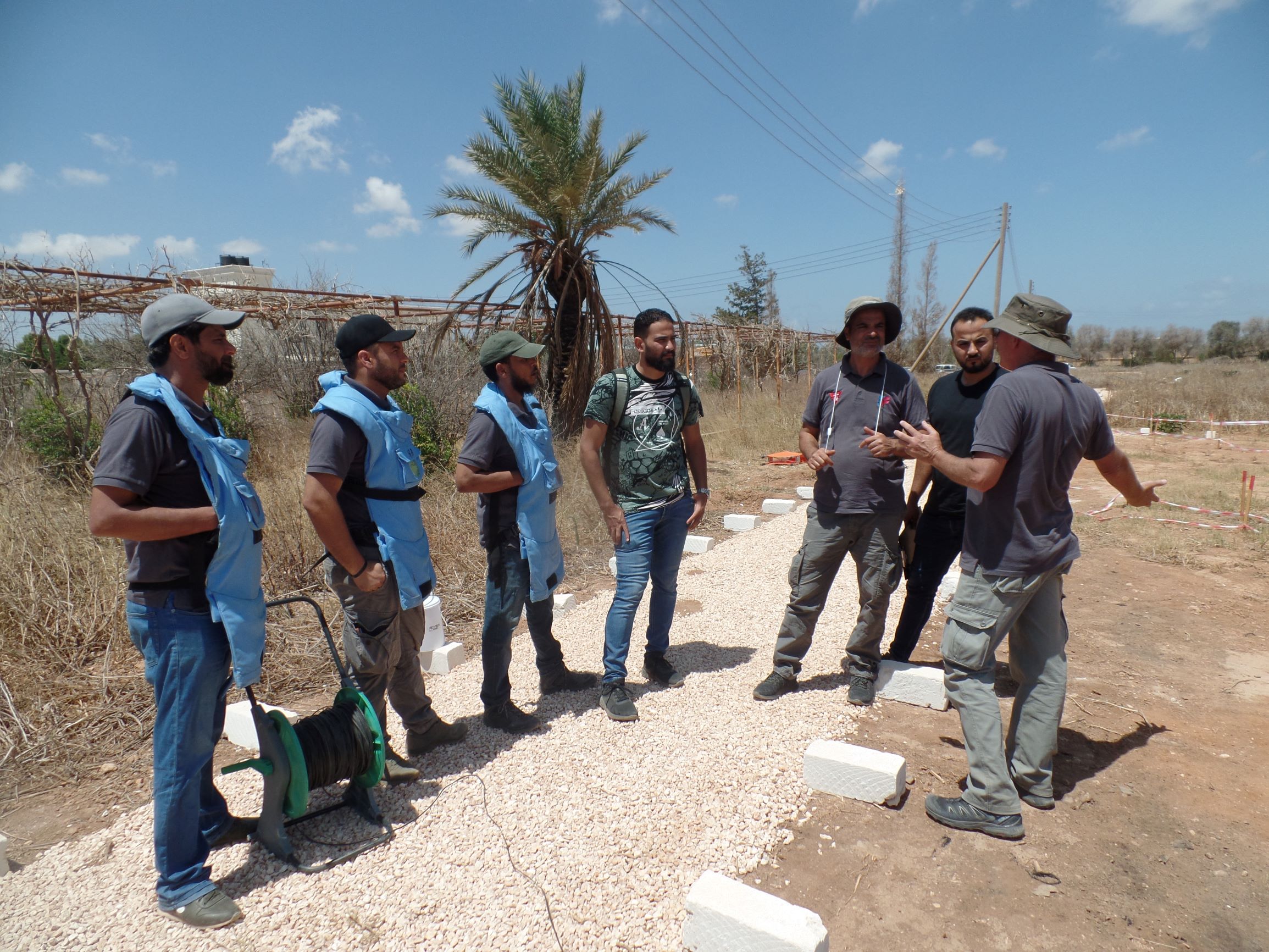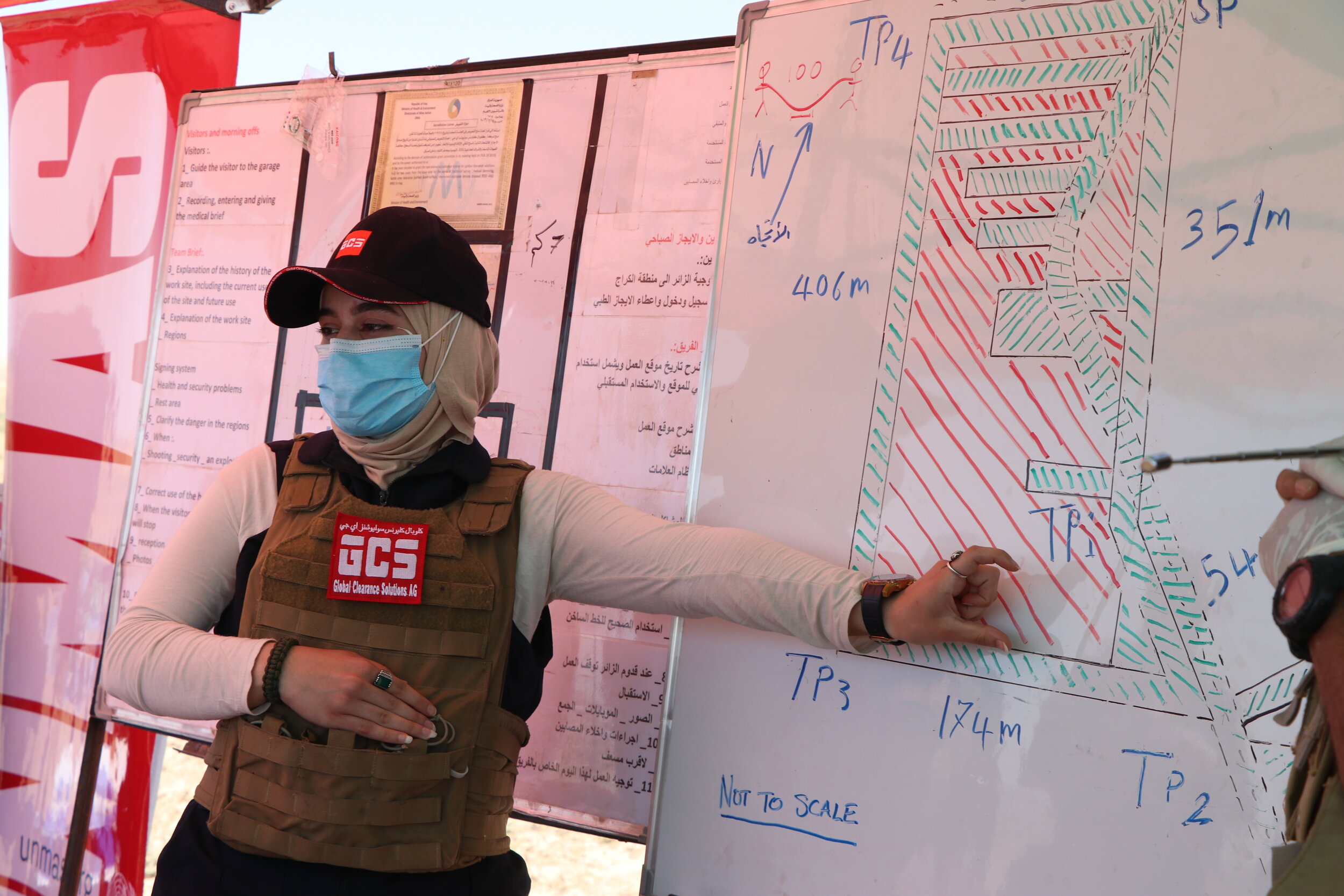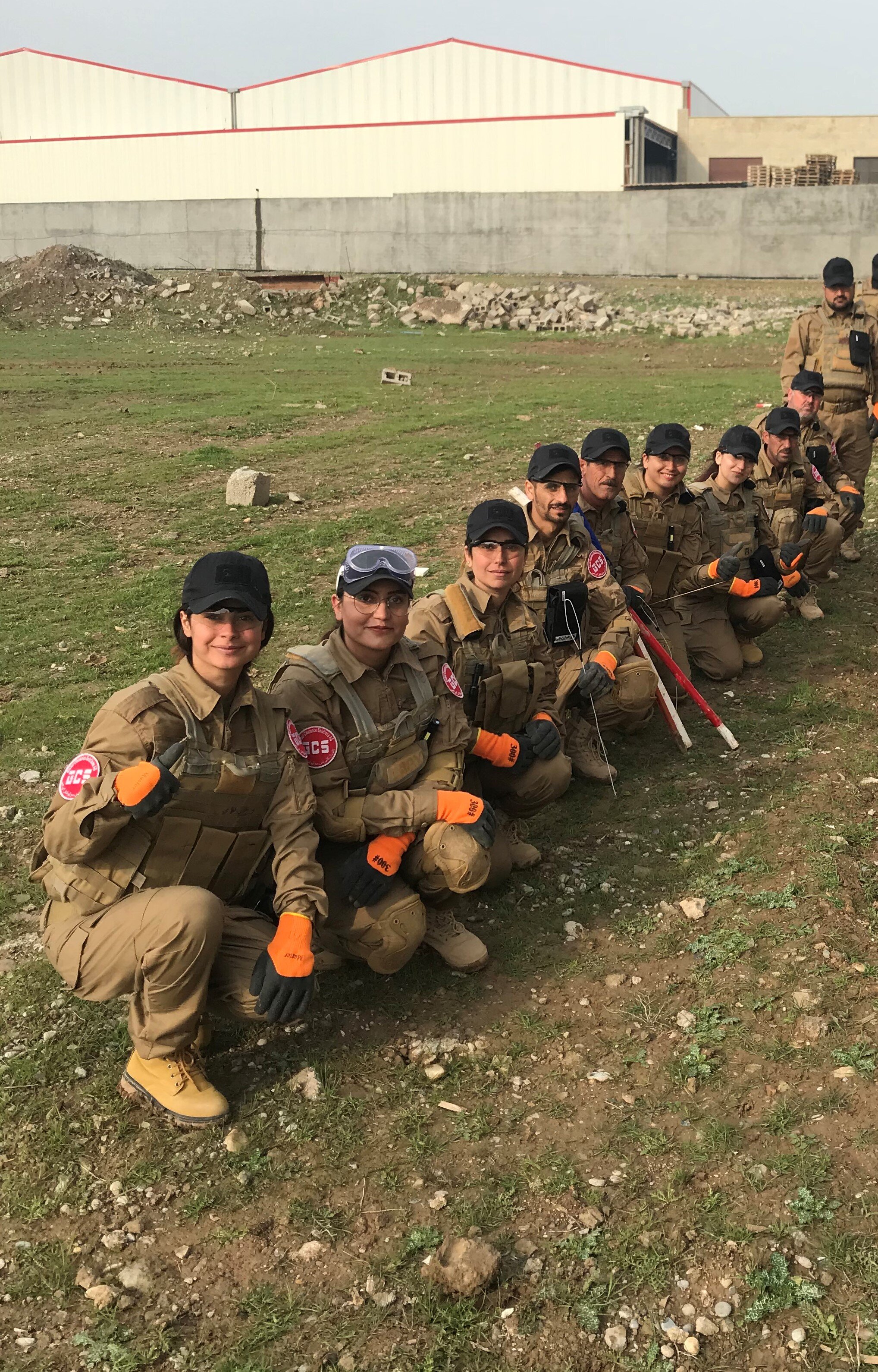Both Libyan civil wars of 2011 and 2014, which are still ongoing today, have left the North African Nation with an Explosive Remnants of War (ERW) contamination of approximately 80 square kilometres. The hundreds of NATO strikes on Ammunition Stockpile Areas has also resulted in more ERW contamination and uncontrolled access to the damaged ammunition storage facilities. Due to the threat posed by the explosives to the local population, as well as potential looting by criminal and terrorist groups, a coordinated effort to rapidly clear these ERW is essential to stabilizing the region.
In 2018 the United Nations Office for Project Services (UNOPS) awarded Global Clearance Solutions (GCS) the contract for the project “Explosive Remnant of War Destruction in Misrata.” The main goal of this project is to collect and destroy 200 tons of Explosive Remnants of War (ERW), which can include hazardous items as well as scrap metal. The ERW is collected from an Ammunition Storage Area (ASA) on a military airbase in Misrata composed of 37 bunkers destroyed by NATO airstrikes in 2011.
STRONG LOCAL PARTNERSHIP
GCS selected the Libyan NGO Free Fields Foundation (3F) as its implementing partner and together built a competent team combining international expertise with local know-how and presence.
REDUCING PROJECT RISKS WITH THE GCS-100
In addition to sending EOD experts to Libya, GCS has also sent a mechanical asset, the GCS-100, which is a remote-control, multi-purpose platform suited for the handling of various forms of explosive material. The GCS-100 will significantly reduce the risk in the project, especially during the moving of unstable ERWs in difficult terrain. The GCS-100 is the first remote-control, mine clearance / EOD system of its kind in Libya. Additionally, GCS will train a team of 3F operators and mechanics on the Equipment.
PROJECT MILESTONES
The ERW clearance is separated into several phases. The ERW assessment of 220'000 square meters around the bunkers revealed a contamination of 2 UXOs per square meter while the rest of the ASA has a contamination of approximately 1 UXO per 1000 square meters. A wide variety of ammunition and ammunition parts were identified ranging from small caliber ammunition to aircraft bombs and long-range missiles. The conditions ranged from completely destroyed to undamaged items.
During the Planning and Preparation phase SOPs and implementation plans were submitted to UNMAS and LibMAC for review. GCS also started training local EOD teams in Battle Area Clearance (BAC) and ERW Search Methodologies, Marking, Clearance Site Layout, Ammunition Recognition, Basic Life Support (BLS) and other relevant tasks. This phase ended once both EOD teams were accredited by the LibMAC in November 2018.
In December phase 3, Selected Site Clearance, officially started and it comprised the collection of hazardous items and separation into scrap metal and ERWs. In March, phase 4, Demolitions, started with the bulk demolitions and burning of the dangerous explosives-containing ERW. This phase is considered the most critical and was implemented in close coordination with the local authorities to ensure all safety measures are respected.
As of March 2019, GCS and 3F have collected a cumulative total of more than 200 tons of ERW and scrap metal of which 40 tons of ERW were successfully destroyed through bulk demolitions and burning. An estimated 12’500 square meters BAC was also conducted on the ASA.
All remaining material has been categorized as “safe to transport”, “safe to move” and “not safe to move” and will be disposed of using the applicable safety procedures. The final Demobilization phase will consist of an additional clean up and final report assessing remaining hazards and lessons learned for future projects.
Looking ahead, with this task successfully completed there are many more challenges awaiting the authorities. There are all sorts of ammunition with various degrees of contamination scattered in difficult-to-access areas. Future projects will have to take this fact into consideration and apply the methodologies needed to reduce the risks for human beings in order to render Libya safe.








